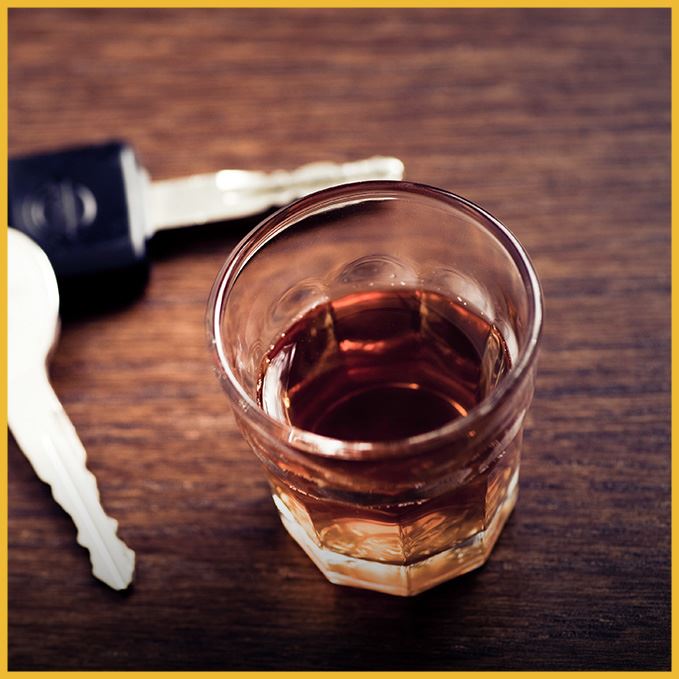Orlando DUI Lawyers
Understanding DUI Charges in Orange County, FL: Alcohol & Drugs
Driving under the influence of alcohol or drugs (DUI) is a serious crime in Florida. The state takes DUI charges very seriously and often seeks the maximum penalties to punish alleged offenders and make an example of them. If you or someone you care about has been charged with DUI, it is absolutely critical that you reach out to a criminal defense attorney with experience handling DUI cases. As former state prosecutors, our Orlando DUI defense attorneys know that these cases are prosecuted by top members of the state's legal team. For this reason, we encourage you to contact our firm for counsel right away.
At our firm, we understand the complexities involved in DUI cases, and the emotional and financial stress it can cause our clients. Whether you are dealing with alcohol or drug-related charges, our team is prepared to provide strategic defense to protect your rights. Our approach is proactive, and we work tirelessly to ensure that every detail of your case is meticulously examined and that you receive the most favorable outcome possible.
To speak with our experienced Orlando DUI lawyers, call us at (407) 753-1312 or contact us online today.
On This Page:


What to Know if You Are Arrested for DUI in Orlando
When you are arrested for or charged with DUI in Florida, several things happen. First, you will face criminal penalties, including possible jail time and steep fines. You will also face certain administrative penalties, including automatic driver’s license suspension.
Here are the main things you need to know if you are arrested for DUI in Florida:
- Your driver’s license will automatically be suspended
- A DMV suspension stays on your driving record for 75 years
- You have 10 days to request a DMV hearing to keep your driving privileges
- Your license can be revoked for 6 months to several years up to permanent revocation
Beyond the immediate actions taken by law enforcement, it's vital to be proactive in securing legal representation. A knowledgeable DUI lawyer in Orlando can provide invaluable guidance through the legal process, potentially minimizing severe repercussions. Understanding the breathalyzer tests and ensuring they were conducted properly can have a significant impact on your defense. Additionally, recognizing the difference between criminal and administrative penalties allows for better preparation and strategy formulation. Florida’s zero-tolerance policy, particularly for drivers under the age of 21, makes experienced legal advice even more critical.
How Ali & Blankner Can Help with Your DUI Defense
Our firm is recognized as one of the area’s leading DUI defense law firms. We have handled well over 100,000 cases, successfully achieving the results our clients needed countless times. Our goal is to not only help you protect your rights and navigate the criminal justice system but also to serve as a source of information, guidance, and counsel throughout the entire process.
Click the link below for more information and access to some of our DUI defense resources:
Ali & Blankner takes a comprehensive approach to DUI defense, recognizing that every client’s situation presents unique challenges and opportunities. From the onset, we conduct a thorough investigation of the circumstances leading to your arrest, including a detailed review of police reports, witness statements, and any available video footage. Our team stays updated on the latest legal precedents and defense strategies to effectively counter the prosecution's case. We also provide consistent communication to keep you informed and alleviate any stress or confusion throughout the process. Choose Ali & Blankner to experience dedicated representation focused on achieving the best possible outcome for your situation.
How to Defend DUI Charges in Florida
While many people think their charges are solidified the moment an officer puts them in the back of a police car, cases are never this simple. There is no denying that everyone makes mistakes, even law enforcement. From incorrectly handling test results to failing to read your rights, these mistakes can lead to evidence being suppressed in your case, ultimately strengthening your defense while weakening the prosecution's case against you.
Depending on the circumstances of your case, we may be able to challenge:
- The Initial Stop: When an officer doesn't have probable cause to pull a driver over, the evidence obtained following the stop may be thrown out.
- Field Sobriety Tests: These tests are extremely subjective and can be proven to be insufficient evidence on their own for DUI charges.
- Chemical Tests: Incorrect calibration, failure to administer tests correctly or at the right time, and mishandled results can all nullify this evidence.
- Actual Blood Alcohol: Sometimes a person's blood alcohol can rise over a short duration, giving a false indication of an illegal BAC, even though they were legal when driving.
- Police Conduct: If the arresting officer acted improperly in any way or violated your rights somehow, any evidence obtained in the wake of this may be inadmissible.
At Ali & Blankner, we develop individualized approaches and innovative defense strategies. Our team can evaluate the evidence and look for possible holes in the prosecution’s case. We strongly recommend that you get in touch with our firm today to discuss your legal rights and options with an experienced Orlando DUI defense attorney.
Defending a DUI charge effectively requires transparent collaboration between client and attorney. We advise clients on maintaining open communication and transparency about all aspects surrounding the incident. This enables us to tailor our defense accurately and counters any surprises that may arise. Our commitment is to utilize every available resource and leave no stone unturned in safeguarding your freedoms.
We offer a free initial consultationto discuss what can be done in your or your loved one's case. In addition, we offer flexible payment plans and will work with you and your financial status.

KNOCKOUT RESULTS
-
Case Dismissed Battery & Assault
Ali & Blankner secure a case dismissal on behalf of a client charged with battery.
-
Case Dismissed Battery & Resisting Arrest
We represented an individual charged with battery on an officer and resisting arrest, successfully getting the case dismissed.
-
Case Dismissed Disorderly Conduct
Ali & Blankner represented a client charged with disorderly conduct.
-
Case Dismissed DUI & Citations
Ali & Blankner worked to get a case dismissed involving a client with both a DUI and citations.
-
Case Dismissal Trespassing
Ali & Blankner obtained a case dismissal on behalf of a client charged with Trespassing.


Hear From Our Happy Clients
At Ali & Blankner, your satisfaction is our priority! See for yourself what our clients have to say about working with us.
-
"Made charges go away swiftly."
I was the victim of a false allegation by a vengeful ex. After nearly a year of stress and fear, Ali & Blankner calmly went ...
- All I. -
"Super helpful and gave me peace"
The law office of Ali & Blankner is one of the most prestigious in Orlando. I contacted them when other lawyers gave me no ...
- Gloria O. -
"Genuine care and concern during a difficult time."
Ali & Blankner has been a godsend. The genuine care and concern shown during a difficult time were much appreciated. Their ...
- T.M. -
"Top Notch Lawyers!"
I will say Ali and his firm are top notch lawyers I was in a situation where the first lawyer that I hired had a reputable reputation in Orlando he ended up screwing me out of $2,000 for the deposit the reason I fired the first lawyer is because he had ver
- Chris C. -
"Amazing!"
Id give more stars if I could... these guys have gotten me out of more trouble than I would care to admit.
- Pablo S. -
"Incredible!"
I was a victim of a false allegation by a vengeful ex. After nearly a year of turmoil stress and fear of my life being destroyed. Ali calmly went to work and made these charges go away and it didnt take but maybe 30 mins of trail time.
- All I.
DUI Defense FAQ
Find Answers to Your Questions:
- Can a DUI be dropped to a lesser charge?
- Can you get a DUI dismissed?
- Can you get a DUI reduced to reckless driving?
- Can a public defender get a DUI reduced?
- What do police look for in drunk drivers?
- Do I have to take a breath test?
- Can police ask me questions after pulling me over without reading me my rights?
- What should I say to an officer if I'm stopped?
- What do officers look for when they stop me?
- What is the first step I should take after a DUI arrest?
- What happens at a DHSMV hearing, and how is it different than my criminal hearing?
- I believe I was unlawfully pulled over and arrested. What can I do?
- I was arrested while on vacation in Orlando. What can I do?
- Can I be arrested for prescription drugs in Florida?
- Can I be arrested for DUI if I was consuming medicinal marijuana and driving?
- How do I find the best lawyer for my Orlando DUI case?
- Is an ignition interlock device mandatory after a DUI?
- Should I accept a plea agreement for a DUI charge?
Is an ignition interlock device mandatory after a DUI?
An ignition interlock device (IID) is a requirement for certain DUI offenses in Florida. For first-time offenders, an IID may be mandated if a breath test indicates a BAC of 0.15% or higher or if a minor was in the vehicle. This device is crucial, as it prevents the vehicle from starting if alcohol is detected on the driver's breath. Failure to install an IID when required can lead to license suspension or revocation. The duration for which an IID is needed can vary based on individual circumstances, including the number of previous offenses. For second and subsequent DUI convictions, the installation of an IID is typically a standard condition, serving both as a punitive and preventive measure. At Ali & Blankner, we guide clients through the requirements and implications of IID installation, ensuring compliance and understanding of its role in regaining driving privileges.
Should I accept a plea agreement for a DUI charge?
When facing a DUI charge, accepting a plea agreement must be considered very carefully. A plea deal often offers reduced penalties in exchange for a guilty plea. However, this acceptance comes with acknowledging a conviction which can have lasting consequences, including increased insurance premiums and a criminal record. Before considering any plea, it's essential to evaluate the strength of the prosecution's evidence, any procedural errors, and potential defenses. Consulting with a qualified attorney ensures you receive comprehensive advice tailored to your specific circumstances. At Ali & Blankner, we provide an in-depth analysis of plea offers, weighing potential benefits against future implications. Our priority is to help you make an informed decision, balancing the immediate advantages of a plea with long-term consequences on your personal and professional life.
Call (407) 753-1312or contact us online today to schedule a free consultation with our experienced Orlando DUI attorneys. Hablamos español.
